We believe effective Pastoral Care is central to rebuilding the confidence and resilience of our young people.
At the Hospital Education Service, we understand the impact that ill-health can have on physical/mental wellbeing, confidence and self-esteem. Being unable to access school due to injury or ill-health can lead to feelings of social isolation and a sense of hopelessness. The Hospital Education Service’s 3C’s Pastoral Framework is designed to address and overcome social and emotional barriers to learning by working with every individual in response to their unique set of circumstances.
Through our Curriculum Conversation Programme, therapeutic interventions and pastoral curriculum, students are supported and encouraged to embrace opportunities to develop confidence, independence and resilience to setbacks. Our shared goal is for every student to leave our service equipped with the knowledge, skills and understanding they need to succeed in life.
DNA-v program
What is the DNA-v program?
We will use the DNA-v approach to help young people develop psychological flexibility, which is the ability to do what they care about even if they have difficult thoughts and feelings. DNA-v stands for Discoverer, Noticer, Advisor and Values. The program is based on research in the area of Acceptance & Commitment Therapy (ACT) which has a very strong evidence support that is recommended for treatment of anxiety, depression and other psychological health issues.
For further information and reading see https://dnav.international/ [https://dnav.international/]
How is DNA-v run?
The program will run:
-
Weekly with a blend of group and 1:1 sessions; student 1:1 sessions being timetabled a specific time slot
-
The first initial sessions will take place over the Autumn Term
-
1:1 slots will be timetabled to avoid core subject areas
-
By our school SEMH lead with support from the Senco
Who is DNA-v for?
Students based at Whitmore Park Annexe to develop their inner resilience, expand their communication language and support them on their journey to feeling more confident both in and outside of the classroom.
Referrals are based on student engagement and willingness participation.
What is taught in the program?
DNA-v will teach the following key concepts:
Noticing thoughts, feelings and physiological changes in the body (e.g. anxiety/stress symptoms)
- Flexible perspective taking and gratitude
- Problem-solving, discussion and exploration of common teenage issues
- Paying attention and self-awareness
- Emotion regulation
- Mentoring and decision making
- Discovering one’s values and goal setting
If you have any further questions, please do not hesitate to contact the school senior mental health lead via the main office.
Goals-based outcomes
What are goals-based outcomes?
Goals-based outcomes (GBOs) are a way for us to measure how students are progressing and the effectiveness of our support. They are used in lots of different types of settings, and they are particularly useful in settings that are change-focused and goal-orientated, just like our service here at the Hospital Education Service. We want to explore the changes that are most important to students and how far they have moved towards reaching a goal that has been set.
How are GBOs run?
- Weekly on a 1:1 basis – you will have a timetabled specific slot
- In your first session you will complete a questionnaire and then use your answers to identify a target for that half term.
- Meetings take place with our school SEMH Lead and SEMH Coach
Who decides my goals?
Students do, with support from a member of our school SEMH team. By completing a short questionnaire, students are able to talk about their hopes for the future and discuss what is important – we want to know how we can help students to achieve their goals. Targets will be based on what you they would like to change or be different.
Sometimes students might find it quite easy to set goals and sometimes they might need a bit of help shaping a goal to make sure it’s doable. Each goal should be something that can be agreed on (this might take a bit of discussion) but the goal should always feel like it's achievable!
Once a goal is agreed, we will make a note of it on the progress chart.
How many goals will be set?
Students will set and work towards one goal each half term. Too many goals at once can be distracting; trying to do everything might mean you struggle to focus on what you want to achieve.
How will I know I have achieved my goal?
Once we understand the goals that have been set, the next step is to explore some of the ways students might get there. There will be a choice of things that might help and the SEMH team will work with you to support.
It can help to rate how close or how far away from a goal you are. Each week, you will score the progress you feel you have made towards your goal. We use a scale of 1-10 and make a note of this on your progress chart.
The important thing to remember is that reaching a goal can be hard and lots of people won’t get there straight away – don’t put yourself under pressure to get 10 /10 straight away! Keeping a record can help in tricky times to remind you what you have already achieved. And, if things don’t work out the first time, we will find another way to work towards that goal.
More information [https://www.corc.uk.net/outcome-experience-measures/goal-based-outcomes-gbo/].

